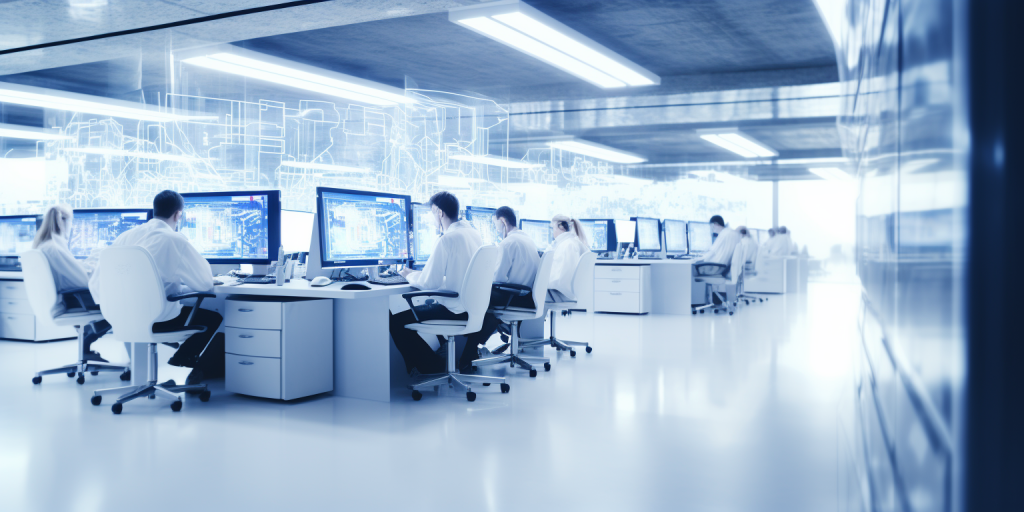
Freemasons who are skilled IT professionals, and Freemasons with an intelligent interest in research and technology, we have an exciting opportunity tailored specifically for you.
Introducing the Ex Libris Academy, a research institution dedicated to shaping the future of Freemasonry in the digital age. As skilled IT professionals and individuals with a keen interest in research and technology, your expertise and insights are invaluable in this transformational journey.
By enrolling in the Ex Libris Academy, you will have access to cutting-edge research outcomes that will guide the future of Freemasonry. Our rigorous academic approach ensures that the knowledge and insights you gain are comprehensive and up-to-date. You will become part of a dynamic community of like-minded Freemasons who share your passion for research and technology.
Enrol now and gain the tools and knowledge to shape the future of Freemasonry in the digital world. As participants in the Ex Libris Academy, you will have permission to use the research results in your own articles and papers, with proper reference and citation. Together, we can ensure that Freemasonry thrives in the 21st century, combining its rich traditions with the advancements of the digital age.
Don’t miss out on this unique opportunity! Enrol today
Challenges And Opportunities: Transforming Freemasonry For The 21st Century’s Digital World

There Is No Alternative To The Digital Age
In this era of rapid technological advancements, where personal computers, internet, virtual reality, and artificial intelligence have become integral to our lives, it is impossible for any sphere to remain unaffected or disconnected. Freemasonry, a centuries-old tradition steeped in history and tradition, is no exception. The digital revolution is set to change how humankind functions: Freemasonry must adapt to thrive in this new environment.
Freemasonry Steeped In 300-Year-Old Tradition Cannot Avoid Digital Impact.
Freemasonry, dating back over 300 years, was founded on the principles of brotherhood; the pursuit of knowledge; and, self-improvement. Its survival can be attributed to adapting to meet the demands of changing environments. To be fit for the purposes of the 21st century, Freemasonry must exploit its opportunities and rise to its challenges.
Freemasonry, Is A Progressive Art
At its core, Freemasonry is all about progress and transformation, both on an individual level and for society as a whole.
Freemasons are encouraged to seek knowledge, improve themselves, and contribute to the betterment of their communities. In this digital age, where information is at our fingertips and connectivity knows no bounds, Freemasonry must find ways to leverage technology to enhance its teachings and reach a wider audience.
Freemasonry promotes self and mutual progress and to share its values, must leverage technology.
Grand Lodges Around The Globe Report Decline In Membership Numbers
In recent years, many Grand Lodges around the world have observed a steady decline in their membership numbers. While there are various reasons for this decline, it is crucial to understand the challenges faced by Freemasonry in the digital world. Digitalisation offers Freemasonry a new means of communication.
Freemason Faces Competition From Other Organisations With A Similar Offer.
One major challenge faced by Freemasonry is competition from other organisations within civil society that offer self-improvement-style learning. In today’s digital age, there are numerous online platforms and communities that provide individuals with opportunities for personal growth and development. These platforms offer convenience, flexibility, and a wide range of resources, attracting individuals who might otherwise have considered joining Freemasonry.
Freemasonry must effectively communicate its unique offer.
Masonic Jurisdictions Might Not Have Appropriate Strategies For Attracting And Retaining Members.
Another challenge stems from the outdated methodologies employed by many Grand Lodges when it comes to sales and social media marketing. Unlike other organisations that actively promote themselves and utilise modern marketing techniques, many Grand Lodges do not permit sales and marketing promotional materials. This lack of visibility and modern branding hinders their ability to attract new members in a digital world where first impressions can make all the difference.
Masonic jurisdictions must review their processes to construct sustainable, resilient, strategies for going forward.
From Initial Enquiry To The ‘Chair’.
An initial enquiry must be regarded as a wonderful opportunity to enhance Freemasonry with the introduction of a new member and provide a wonderful opportunity for the enquirer. The process must accommodate the realistic expectations of the enquirer.
It Is For Lodges To Be Centres Of Excellence.
It is clear that Freemasonry, with its traditional processes and structures, is struggling to keep up with the demands and expectations of the digital age. While the core principles of Freemasonry should not be compromised, the process of transitioning from an ‘18th century analogue process’ to a ‘21st century digital world’ is no small feat. There are significant challenges to overcome, including members’ resistance to change, fear of the unknown, and idealised notions of what Freemasonry should be.
Lodges must evaluate the quality of their undertakings; indeed, is their existence any more than a self-indulgence?
Welcome to Ex Libris Academy

This unique initiative brings together IT professionals and Freemasons with an interest in IT to research how IT might secure Freemasonry’s future..
Ex Libris Academy is open to Freemasons By enrolling in the academy, participants gain access to a wealth of research outcomes that can be utilised in their own articles and papers. Proper reference and citation to the authors and the Ex Libris Academy are required to ensure academic integrity and acknowledgment of the collaborative efforts.
To survive, Freemasonry must embrace the opportunities offered by the 21st century. By addressing the challenges faced, such as competition from other organisations, outdated methodologies, and a lack of value delivery, Freemasonry can transform itself to remain relevant and appealing to the contemporary world. Initiatives such as the Ex Libris Academy they are preparing the way for a digital future of Freemasonry, retaining its core principles, whilst adapting to meet future reasonable expectations.
The Ex Libris Academy will serve as the hub of our research activities; within it, is embedded our Vision. As a UK registered limited company, the Academy is organisationally separate from the Ex Libris Lodge and provides an opportunity for Freemasonry universal.
On joining Ex Libris Lodge No. 3765, you are entitled to automatic enrolment in the Ex Libris Academy. Here, you are able to become integral in realising our mission.
We believe that the best way to achieve our goals is through collaboration. Therefore, the Academy will seek for members to form and work in teams leveraging diverse skills and perspectives.
Each member will work within an agreed Personal Development Plan, ensuring that individual growth and learning will inform collective endeavour.
The Ex Libris Academy’s work extends beyond our Lodge’s members. We welcome Freemasons from all obediences to join our global community of forward-thinking Freemasons. Non-lodge members may, an annual subscription, participate in our pioneering research, contribute to the future of Freemasonry, and join a network of individuals united by their passion for the Craft and their commitment to its future.
Published Articles

Please see recently published article with special reference to Freemasonry in the digital age in the Square Magazine
Introduction
An Outline Of Possible Research Topics.
Section 1: A list of ten possible research topics.
Section 2: A research template intended to clarify the research objectives, methodology, and significance.
Section 3: Possible research proposals for each core topic as defined by the template
The outline research proposals are initial and open for development as the research progresses.
Research Participants
Freemasons who are skilled IT professionals, and Freemasons with an intelligent interest in research and technology, we have an exciting opportunity tailored specifically for you.
Introducing the Ex Libris Academy, a research institution dedicated to shaping the future of Freemasonry in the digital age. As skilled IT professionals and individuals with a keen interest in research and technology, your expertise and insights are invaluable in this transformational journey.
Research participants are invited to select one core topic, and by enrolling in the Ex Libris Academy, you will have access to cutting-edge research outcomes that will guide the future of Freemasonry. Our rigorous academic approach ensures that the knowledge and insights you gain are comprehensive and up-to-date. You will become part of a dynamic community of like-minded Freemasons who share your passion for research and technology.
Enrol now and gain the tools and knowledge to shape the future of Freemasonry in the digital world. As participants in the Ex Libris Academy, you will have permission to use the research results in your own articles and papers, with proper reference and citation. Together, we can ensure that Freemasonry thrives in the 21st century, combining its rich traditions with the advancements of the digital age.
Don’t miss out on this unique opportunity! Enrol today and become an instrumental force in transforming Freemasonry for the 21st century.
Research participants are invited to select one core topic.
Proposed Core Topics of Academic Research
(i) Lodge & Chapter integrity – Ex Libris Lodge / UGLE Specific (Not academy)
why would this topic deserve research
how can the 3 craft degrees and chapter be closer integrated into a seamless journey – 1,2,3,4
(ii) The use of VR for regular lodge meetings
why would this topic deserve research
how can a regular ritual meeting be conducted in a VR space
see details…
(iii) The use of AI tools to support Lodges
why would this topic deserve research
how can AI tools be used to support all current Masonic lodges and units
see details…
(iv) The use of Blockchain / SBT in Lodges
why would this topic deserve research
how can Blockchain be used as a digital security mechanism
how can SBTs be used as a means of identification
how can blockchain + crypto be used as a means of payment
see details…
(v) The use of NFTs in freemasonry
why would this topic deserve research
what are the application for NFTs
how can NFTs be used in freemasonry
see details…
(vi) General IT automation for lodge admin
why would this topic deserve research
what enhanced IT automation tools are available
how can they be used for lodge administration
see details…
(vii) Sales Funnel / Social Media marketing for lodges
why would this topic deserve research
what are the best social media practices
how can they be applied to Freemasonry
see details…
(viii) Best practises for data security (login/passwords)
why would this topic deserve research
what are the best date security practices
how can they be applied to masonic units
see details…
(ix) Adaptation of One Day Classes
why would this topic deserve research
what advantages can be learned from this approach to ritual
how could it be applied to freemasonry in a VR space
see details…
(x) Guided Learning
why would this topic deserve research
what are the best practises for online guided learning
how can guided learn be applied to freemasonry
see details…
Academic Outline Research Template
By addressing these questions, a research proposal provides a comprehensive overview of the planned research, ensuring that reviewers or potential funders understand the scope, significance, and feasibility of the project.
Details
Here are the principal questions that should be included:
- Introduction:
- What is the research topic or problem?
- Why is this topic important or relevant?
- What is the current state of knowledge on this topic?
- Research Objectives or Hypotheses:
- What are the specific aims of the research?
- If applicable, what hypotheses will be tested?
- Background and Literature Review:
- What have other researchers found related to this topic?
- What gaps exist in the current literature?
- How does your research build on or differ from existing studies?
- Research Methodology:
- What research methods will you use (e.g., qualitative, quantitative, mixed methods)?
- How will you collect data (e.g., surveys, interviews, experiments, observations)?
- What is your sample size and how was it determined?
- How will you ensure the validity and reliability of your data?
- Significance and Contribution:
- How will your research contribute to the existing body of knowledge?
- What practical implications might your research have?
- Ethical Considerations:
- How will you ensure the ethical treatment of participants?
- Are there any potential risks to participants, and how will they be mitigated?
- Limitations:
- What are the potential limitations of your study?
- How might these limitations impact the results or conclusions?
- Timeline:
- What is the projected timeline for your research?
- What are the key milestones and when do you expect to achieve them?
- Budget (if applicable):
- What are the estimated costs associated with your research?
- How will these costs be funded?
- Conclusion:
- What are the expected outcomes of the research?
- How will the results be disseminated (e.g., publications, conferences)?
- References:
- Which sources have you cited in your proposal?
- Are there any key texts or studies that are foundational to your research?
Outline Research Proposal: The Use of Virtual Reality (VR) for Regular Lodge Meetings

In summary, this research proposal aims to explore the potential benefits and challenges of using virtual reality (VR) technology for regular lodge meetings. The research objectives include assessing the feasibility and effectiveness of conducting rituals and meetings in a VR space, with the hypothesis that VR meetings will enhance engagement and participation compared to traditional in-person meetings. The proposed research methodology involves a mixed-methods approach, with data collected through surveys, interviews, and observations of VR lodge meetings. The significance of the research lies in its contribution to the existing knowledge on the use of VR in various settings, and its practical implications for improving accessibility, participation, and member experiences in lodge meetings. Ethical considerations will be addressed, and potential limitations, timeline, and budget are outlined. The expected outcomes include insights into the feasibility and effectiveness of VR lodge meetings, with results being disseminated through academic publications and conference presentations.
1. Introduction:
– The research topic or problem is the use of VR for regular lodge meetings.
– This topic is important because it explores the potential benefits and challenges of incorporating VR technology into traditional lodge meetings.
– The current state of knowledge on this topic is limited, with few studies investigating the use of VR in a lodge meeting context.
2. Research Objectives or Hypotheses:
– The specific aims of the research are to assess the feasibility and effectiveness of conducting regular ritual meetings in a VR space.
– Hypothesis: Regular lodge meetings conducted in a VR space will enhance engagement and participation compared to traditional in-person meetings.
3. Background and Literature Review:
– Limited research has been conducted on the use of VR technology in a lodge meeting context.
– There is a lack of knowledge regarding the potential benefits and challenges of using VR for regular ritual meetings.
– This research will build on existing studies on the use of VR in various settings to explore its applicability to regular lodge meetings.
4. Research Methodology:
– A mixed-methods approach will be employed, combining qualitative and quantitative methods.
– Data will be collected through surveys, interviews, and observations of lodge meetings conducted in VR.
– The sample size will be determined based on the availability of participants willing to participate in the VR lodge meetings.
– Validity and reliability of data will be ensured through careful design of research instruments and data analysis procedures.
5. Significance and Contribution:
– This research will contribute to the existing body of knowledge by exploring the potential benefits and challenges of using VR for regular lodge meetings.
– The findings will provide insights into the effectiveness of VR technology in enhancing engagement and participation in ritual meetings.
– The practical implications of incorporating VR into lodge meetings can lead to improved accessibility, increased participation, and enhanced member experiences.
6. Ethical Considerations:
– Ethical treatment of participants will be ensured through informed consent and protection of privacy.
– Potential risks associated with using VR technology, such as cybersickness and psychological discomfort, will be mitigated by providing breaks and offering support during and after the VR lodge meetings.
7. Limitations:
– Potential limitations of the study include limited availability of VR equipment and potential technical difficulties during VR lodge meetings.
– These limitations may impact the validity and generalisability of the results.
8. Timeline:
– The projected timeline for the research is as follows:
– Literature review and proposal development: Month 1
– Participant recruitment and data collection: Months 2-4
– Data analysis and interpretation: Months 5-6
– Report writing and dissemination: Months 7-8
9. Budget (if applicable):
– The estimated costs associated with the research include VR equipment, participant compensation, and data analysis software.
– These costs will be funded through a combination of departmental resources and potential external funding.
10. Conclusion:
– The expected outcomes of the research include insights into the feasibility and effectiveness of conducting regular lodge meetings in a VR space.
– The results will be disseminated through academic publications and presentations at relevant conferences.
11. References:
– Include any sources cited in the proposal and key texts or studies that inform the research.
By addressing these questions, this research proposal provides a comprehensive overview of the planned research, emphasising the scope, significance, and feasibility of studying the use of VR for regular lodge meetings.

This research proposal is focused on investigating the use of AI tools to support Masonic lodges. The goal is to explore how AI can enhance various aspects of lodge operations, including administration, communication, and member engagement. The research aims to fill a gap in the current literature, as there are limited studies on this specific topic. The methodology will involve a mixed methods approach, with data being collected through surveys, interviews, and observations. The research will contribute to the existing body of knowledge by providing insights into the benefits and challenges of using AI in Masonic lodges. Ethical considerations will be prioritised, and potential limitations include the specific context and challenges of implementing AI in traditional organisations. The projected timeline for the research is 12 months, and the budget will be sought through grant proposals and potential partnerships. The expected outcomes include recommendations for the integration of AI tools, improved efficiency, enhanced communication, and increased member satisfaction. The results will be disseminated through academic publications, conference presentations, and sharing findings with Masonic lodges and organisations.
1. Introduction:
– The research topic is the use of AI tools to support Masonic lodges.
– This topic is important because it has the potential to enhance the efficiency and effectiveness of lodge operations.
– The current state of knowledge on this topic is limited, with only a few studies exploring the use of AI tools in the context of lodges.
2. Research Objectives:
– The specific aims of the research are to investigate how AI tools can be utilised to support various aspects of Masonic lodges, such as administration, communications, and member engagement.
– Hypotheses: If AI tools are integrated into lodge operations, there will be a positive impact on efficiency, communication, and member satisfaction.
3. Background and Literature Review:
– Limited research exists on the use of AI tools in Masonic lodges.
– The literature review will focus on related studies examining the benefits and challenges of AI implementation in other organisational settings.
– The research will build on existing studies by specifically examining how AI tools can be tailored to meet the unique needs and traditions of Masonic lodges.
4. Research Methodology:
– A mixed methods approach will be used, incorporating both qualitative and quantitative data collection methods.
– Data will be collected through surveys, interviews, and observations.
– The sample size will be determined through a systematic sampling approach, ensuring representation from diverse Masonic lodges.
– Measures will be taken to ensure the validity and reliability of data, such as pilot testing survey instruments and using multiple data collectors.
5. Significance and Contribution:
– This research will contribute to the existing body of knowledge by providing insights into the potential benefits and challenges of using AI tools in Masonic lodges.
– The practical implications of this research include improving lodge operations, enhancing communication among lodge members, and increasing member satisfaction.
6. Ethical Considerations:
– Participants’ privacy and confidentiality will be ensured throughout the research process.
– Informed consent will be obtained from all participants.
– Any potential risks to participants will be minimised, and appropriate measures will be taken to address these risks.
7. Limitations:
– Potential limitations of the study include limited generalisability due to the specific context of Masonic lodges and the challenges associated with implementing AI tools in traditional organisations.
– These limitations may impact the overall results and conclusions drawn from the research.
8. Timeline:
– The projected timeline for the research is 12 months.
– Key milestones include literature review completion, data collection, data analysis, and report writing.
9. Budget:
– The estimated costs associated with the research include participant recruitment, data collection tools, data analysis software, and dissemination of research findings.
– Funding for the research will be sought through grant proposals and potential partnerships with Masonic organisations.
10. Conclusion:
– The expected outcomes of the research include recommendations for the integration of AI tools into Masonic lodges, improved operational efficiency, enhanced communication, and increased member satisfaction.
– The results will be disseminated through academic publications, conference presentations, and sharing findings with Masonic lodges and organisations.
11. References:
– A comprehensive list of cited sources and key texts related to the topic will be provided in the proposal.

In summary; The research aims to explore how blockchain can enhance digital security mechanisms, investigate the potential use of Self-sovereign Biometric Tokens (SBTs) for identification, and examine the feasibility and benefits of utilising blockchain and cryptocurrencies as a payment method within lodges. The proposal highlights the limited existing research in this area and outlines the research methodology, including qualitative and quantitative methods such as surveys, interviews, data analysis, and case studies. The significance and contribution of the research are emphasised, as well as the ethical considerations and potential limitations. The timeline, budget, expected outcomes, and dissemination plans are also summarised. Lastly, the executive summary includes a list of references for further reading.
1. Introduction:
– Research topic: The use of Blockchain and Self-sovereign Biometric Tokens (SBTs) in Lodges.
– Importance of the topic: The integration of blockchain and SBTs in the lodge industry has the potential to revolutionise security, digital identification, and payment systems.
– Current state of knowledge: Limited research has been conducted on the specific application of blockchain and SBTs in the lodge industry. However, there are existing studies on blockchain technology and its potential applications in various sectors.
2. Research Objectives:
– Aim 1: To explore how blockchain can enhance digital security mechanisms in lodges.
– Aim 2: To investigate the potential use of SBTs as a means of identification in lodge operations.
– Aim 3: To examine the feasibility and benefits of utilising blockchain and cryptocurrencies as a payment method within lodges.
3. Background and Literature Review:
– Previous research: Literature review will include studies on blockchain technology, digital security, biometric identification, and payment systems in the lodge industry.
– Existing gaps: Identify the lack of research specifically focusing on the integration of blockchain and SBTs in lodges.
– Research novelty: Highlight how this research proposal builds upon existing studies by exploring the application of blockchain and SBTs in the lodge industry.
4. Research Methodology:
– Research methods: A combination of qualitative and quantitative methods will be employed, including surveys, interviews with industry experts, data analysis, and case studies.
– Data collection: Surveys and interviews will be conducted with lodge owners, managers, and guests, while data related to blockchain implementation in existing lodges will be collected for analysis.
– Sample size: The sample size will be determined based on the availability of participants and adequate representation of different types and sizes of lodges.
– Validity and reliability: Measures such as anonymous data collection and triangulation of data from multiple sources will be used to ensure validity and reliability.
5. Significance and Contribution:
– Contribution to knowledge: This research will expand the understanding of blockchain technology and its potential applications in the lodge industry, filling the existing gap in the literature.
– Practical implications: The findings will provide lodge owners and operators with insights into the benefits and challenges of implementing blockchain and SBTs for security, identification, and payment systems.
6. Ethical Considerations:
– Participant treatment: Informed consent will be obtained from all participants, and their privacy and confidentiality will be strictly maintained.
– Risk mitigation: Adequate measures will be taken to protect participants’ data and prevent any potential risks associated with the use of their personal information.
7. Limitations:
– Potential limitations: Limitations may include the availability of industry experts for interviews, the willingness of lodges to share their data, and the generalisability of findings due to the diversity of lodge types.
– Impact on results: These limitations may affect the generalisability and applicability of the research findings in the lodge industry.
8. Timeline:
– Projected timeline: The research project will span over 12 months, including literature review, data collection, analysis, and report writing.
– Key milestones: Milestones will include drafting the research proposal, obtaining ethical approvals, conducting interviews and surveys, data analysis, and writing final reports.
9. Budget:
– Estimated costs: The primary costs will be associated with data collection, travel expenses for interviews, and data analysis software.
– Funding: The research will be funded through institutional research grants or sponsorships from relevant industry stakeholders.
10. Conclusion:
– Expected outcomes: The research aims to provide insights into the feasibility and benefits of implementing blockchain and SBTs in the lodge industry for enhanced security, identification, and payment systems.
– Dissemination of results: Research findings will be shared through academic publications, conference presentations, and industry-specific forums.
11. References:
– List of cited sources, including key texts and studies foundational to the research proposal.

In summary; the research proposal on the use of NFTs in Freemasonry highlights the importance and relevance of exploring the potential applications of NFTs within this traditional organisation. The proposal aims to address a gap in the literature by examining how NFTs can enhance rituals, membership authentication, and intellectual property management within Freemasonry. The research will use a mixed methods approach, including interviews with freemasons and analysis of existing NFT platforms. The findings will contribute to existing knowledge and have practical implications for Freemasonry organisations. Ethical considerations and limitations of the study are also identified. The project is expected to be completed within one year. The results will be disseminated through academic publications and presentations.
1. Introduction:
– Research topic: The use of NFTs in freemasonry.
– Importance/relevance: Freemasonry is a centuries-old secretive and exclusive fraternal organisation that can benefit from modern technologies like NFTs. This research seeks to explore the potential applications of NFTs within the context of freemasonry, combining tradition and innovation.
– Current state of knowledge: Limited existing literature examines the use of NFTs specifically in freemasonry, highlighting a gap that this research aims to address.
2. Research Objectives or Hypotheses:
– Specific aims: This research aims to explore and identify potential applications of NFTs within freemasonry, examining how these digital assets can enhance rituals, membership authentication, or intellectual property management.
– Hypothesis: NFTs can provide a secure and immutable method for verifying membership, preserving and transmitting masonic rituals, and protecting intellectual property within the freemasonry community.
3. Background and Literature Review:
– Other researchers’ findings: Limited scholarly work exists on NFTs within freemasonry. However, broader NFT literature demonstrates the potential for authentication, provenance, and ownership tracking, which may be relevant to freemasonry.
– Gaps in current literature: No literature specifically explores the use of NFTs in freemasonry, leaving a gap in knowledge regarding this potential application.
– Building on existing studies: This research builds upon the findings from NFT literature while introducing a new context in freemasonry.
4. Research Methodology:
– Research methods: This research will incorporate a mixed methods approach, including qualitative interviews with freemasons, survey data collection, and analysis of existing NFT platforms.
– Data collection: Surveys will be designed and distributed to freemasons involved in NFT-related projects or with relevant expertise. Additionally, semi-structured interviews will be conducted with key stakeholders.
– Sample size: The initial sample size will include a minimum of 100 freemasons from diverse lodges and jurisdictions. However, sample size determination will be refined based on saturation of data.
– Validity and reliability: Triangulation of data sources and member-checking will ensure the validity and reliability of the collected data.
5. Significance and Contribution:
– Contribution to existing knowledge: This research will contribute by exploring the potential applications of NFTs within freemasonry, filling a gap in the literature while offering insights into the viability and benefits of using NFTs in a traditional organisation.
– Practical implications: The findings of this research may inform freemasonry organisations about the possibilities of incorporating NFTs for enhanced member authentication, ritual preservation, and intellectual property management.
6. Ethical Considerations:
– Ethical treatment: Participant consent and confidentiality will be ensured throughout the research process, adhering to ethical guidelines.
– Risk mitigation: Potential risks to participants will be mitigated by maintaining anonymity and protecting sensitive information, ensuring that nobody is adversely affected by their involvement.
7. Limitations:
– Potential limitations: The limitations of this study include restricted access to freemasonry organisations, challenges in recruiting participants, and potential resistance to adopting new technologies within traditional settings.
– Impact on results: These limitations can impact the generalisability and external validity of the findings.
8. Timeline:
– Projected timeline: The research is anticipated to be conducted over a one-year period, including literature review, data collection, and analysis, and the writing of the final report.
– Key milestones: Literature review completion, data collection, data analysis, and the completion of the research report are the primary milestones.
9. Budget (if applicable):
– Estimated costs: The costs associated with this research project include participant recruitment, data collection tools, and data analysis software.
– Funding sources: Seek funding through academic research grants, freemasonry organisations, or crowdfunding platforms.
10. Conclusion:
– Expected outcomes: This research will offer insights into the potential use of NFTs in freemasonry, highlighting opportunities for innovation and modernisation within a traditional organisation.
– Dissemination of results: The findings will be disseminated through academic publications and presentations at relevant conferences, sharing the results with both freemasonry and NFT communities.
11. References:
– A list of relevant sources and studies that underpin the research proposal.
By addressing these questions, this comprehensive research proposal outlines the research objectives, provides an overview of the methodology, and highlights the significance and potential contributions of studying the use of NFTs in freemasonry.

In summary; the proposed research project on general IT automation for lodge administration. The use of automation in lodge administration is essential for improving efficiency and guest experience while reducing costs. However, limited research exists specifically on IT automation for this industry, highlighting the need for further exploration. The research objectives are to identify enhanced IT automation tools relevant to lodge administration and assess the potential benefits and challenges associated with their implementation. The research methodology will employ a mixed methods approach, including surveys and interviews with lodge administrators, managers, and IT professionals. The findings of this research will contribute to existing knowledge and provide practical implications for lodge administrators and managers. Ethical considerations will be taken into account, and limitations include the limited sample size and dependability of participant responses. The research is expected to be conducted over a specified timeline with estimated costs that will be covered by institutional support or external grants. The expected outcomes are improved operational efficiency and insights into the benefits and challenges of IT automation tools for lodge administration. The results will be disseminated through academic publications, conference presentations, and industry-specific forums.
1. Introduction:
– Research topic: General IT automation for lodge admin.
– Importance: The automation of lodge administration processes is crucial for improving efficiency, reducing costs, and enhancing the guest experience.
– Current state of knowledge: Limited research exists specifically on IT automation for lodge administration, highlighting the need for further exploration in this area.
2. Research Objectives or Hypotheses:
– Research aims:
– To identify enhanced IT automation tools relevant to lodge administration.
– To assess the potential benefits and challenges associated with implementing these tools in lodge management.
3. Background and Literature Review:
– Existing research: While there is limited research specifically focused on IT automation in lodge administration, there are studies on automation in other industries that can provide insights into the potential benefits and challenges.
– Gaps in the current literature: The lack of research specifically on IT automation for lodge admin demonstrates a need for further investigation.
– Building on existing studies: This research will build on previous studies by applying automation concepts to the unique context of lodge administration.
4. Research Methodology:
– Research methods: A mixed methods approach will be used, combining qualitative and quantitative techniques.
– Data collection: Data will be collected through surveys and interviews with lodge administrators, managers, and IT professionals in the hospitality industry.
– Sample size and determination: A sample size of X participants will be determined based on the representativeness of different lodge types and sizes.
– Validity and reliability: To ensure validity, data collection instruments will be pre-tested and pilot-tested. Reliability will be ensured through intercoder reliability checks and triangulation of data sources.
5. Significance and Contribution:
– Contribution to existing knowledge: This research will contribute to the existing body of knowledge by providing insights into the utilisation and effectiveness of IT automation tools in lodge administration.
– Practical implications: The findings will help lodge administrators and managers make informed decisions about adopting and implementing IT automation tools, leading to improved operational efficiency and guest satisfaction.
6. Ethical Considerations:
– Ethical treatment of participants: Informed consent will be obtained from all participants, and their confidentiality and anonymity will be ensured.
– Participant risks mitigation: Participants may encounter minimal risks, such as sharing sensitive information. These risks will be mitigated through data encryption, secure storage, and ensuring participation is voluntary.
7. Limitations:
– Potential limitations: Limitations of this research may include the limited sample size and the dependability of participant responses.
– Impact of limitations: These limitations may affect the generalisability of the findings and the overall validity of the conclusions.
8. Timeline:
– Projected timeline: The research is expected to be conducted over a period of X months.
– Key milestones: Milestones include finalising the research design, data collection, data analysis, and report writing.
9. Budget:
– Estimated costs: The estimated costs for this research include participant incentives, data collection materials, and data analysis software.
– Funding: The research will be funded through institutional support or external grants.
10. Conclusion:
– Expected outcomes: The research expects to provide insights into the benefits and challenges of IT automation tools for lodge administration, informing decision-making and potential improvements in operational efficiency.
– Dissemination of results: The research findings will be disseminated through academic publications, conference presentations, and industry-specific forums.
11. References:
– A list of references will be included, citing relevant studies and sources that are foundational to the research proposal.

In summary; the research proposal is focused on the role of sales funnels and social media marketing in attracting and managing new memberships in Freemasonry lodges. It highlights the significance of the topic, gaps in existing literature, research objectives and hypotheses, methodology, ethical considerations, limitations, timeline, and budget. The expected outcome of the research is to provide actionable insights for Freemasonry lodges on how to leverage sales funnel and social media marketing to improve membership acquisition and management. The findings will be disseminated through academic publications and conference presentations.
1. Introduction:
– Research topic: The role of sales funnel and social media marketing in attracting and managing new memberships in Freemasonry lodges.
– Significance: Freemasonry lodges are facing challenges in attracting and retaining new members. This research will explore the potential of sales funnel and social media marketing strategies to address these challenges.
– Current state of knowledge: Limited research has been conducted on the specific application of sales funnel and social media marketing in Freemasonry lodges.
2. Research Objectives or Hypotheses:
– Objectives: The primary objective of this research is to investigate the effectiveness of sales funnel and social media marketing strategies in attracting and managing new memberships in Freemasonry lodges.
– Hypotheses: It is hypothesised that implementing optimised sales funnel and social media marketing practices will lead to increased membership acquisition and improved member management in Freemasonry lodges.
3. Background and Literature Review:
– Existing research: Limited studies have examined the use of sales funnel and social media marketing in Freemasonry lodges. However, broader research on sales funnel and social media marketing practices can provide valuable insights applicable to this context.
– Literature gaps: There is a lack of research specifically addressing the application of sales funnel and social media marketing practices in attracting and managing new memberships in Freemasonry lodges.
– Research contribution: This research will bridge the gap in the existing literature by providing practical guidance on how Freemasonry lodges can leverage sales funnel and social media marketing techniques to improve membership acquisition and management.
4. Research Methodology:
– Research methods: This study will utilise a mixed methods approach involving qualitative and quantitative data collection.
– Data collection: Research data will be collected through surveys, interviews, and social media analytics.
– Sample size: The sample will consist of Freemasonry lodges from diverse geographical locations, ensuring representation from different regions.
– Validity and reliability: Measures will be taken to ensure the validity and reliability of collected data through proper survey design, standardised interview protocols, and data triangulation.
5. Significance and Contribution:
– Contribution to knowledge: This research will contribute to the existing body of knowledge by providing actionable insights on the successful application of sales funnel and social media marketing strategies in Freemasonry lodges.
– Practical implications: The findings of this research will guide Freemasonry lodges in adopting best practices for attracting and managing new memberships through the use of sales funnel and social media marketing techniques.
6. Ethical Considerations:
– Participant protection: Participants’ privacy and confidentiality will be maintained throughout the research process.
– Risk mitigation: Potential risks to participants, such as data breaches or online harassment, will be mitigated through appropriate security measures and informed consent processes.
7. Limitations:
– Limitations of the study may include time constraints, access to a representative sample, and potential biases in self-reported data.
– These limitations may impact the generalisability and external validity of the research findings.
8. Timeline:
– The projected timeline for this research is approximately one year, including data collection, analysis, and report writing.
– Key milestones include literature review completion, data collection and analysis, and the finalisation of the research report.
9. Budget:
– Estimated costs associated with the research include data collection tools, participant compensation if applicable, and potential travel expenses for interviews and lodge visits.
– Funding for this research will be sought through grants, sponsorships, or institutional support.
10. Conclusion:
– Expected outcomes: The research is expected to provide insights into the effective application of sales funnel and social media marketing strategies in attracting and managing new memberships in Freemasonry lodges.
– Dissemination of results: Research findings will be disseminated through academic publications, conference presentations, and potentially shared with relevant Freemasonry lodges.
11. References:
– A list of key academic and industry sources that have been cited in the research proposal.

This research proposal aims to address the best practices for data security in Masonic units, with a focus on login/passwords. The importance of this topic stems from the critical concern of data security in the digital age, particularly for organisations like Masonic units. Currently, there is limited research specifically addressing data security practices in Masonic units, but general best practices exist that can be applied. The objectives of this research are to identify and analyse the best practices for data security, investigate their applicability to Masonic units, and assess the effectiveness of implementing these practices in enhancing the protection of sensitive information. The research will utilise a mixed methods approach, collecting data through interviews, surveys, and analysis of existing Masonic unit databases. The research will contribute to the existing body of knowledge by providing specific recommendations for data security best practices in Masonic units, which currently lack tailored guidance in this domain. Implementing effective data security practices can safeguard sensitive member information, protect organisational reputation, and ensure compliance with regulatory requirements. Ethical considerations will be adhered to, and potential limitations regarding sample representation and resource availability will be addressed. The research is estimated to be completed within a year, with funding secured from institutional or external sources. Expected outcomes include practical recommendations for enhancing data security in Masonic units and dissemination of findings through academic publications and conferences.
1. Introduction:
– Research Topic: The research topic is best practices for data security in Masonic units, specifically focusing on login/passwords.
– Importance: This topic deserves research as data security is a critical concern in the digital age, and protecting sensitive information is crucial for organisations like Masonic units.
– Current State of Knowledge: Currently, there is limited research specifically addressing data security practices in Masonic units. However, general data security best practices exist that can be applied in various organisational settings.
2. Research Objectives or Hypotheses:
– Specific Aims: The aims of this research are to identify and analyse the best practices for data security, with a focus on login/passwords, and investigate the applicability of these practices to Masonic units.
– Hypotheses: It is hypothesised that implementing effective data security practices, including robust login/password protocols, will enhance the protection of sensitive information within Masonic units.
3. Background and Literature Review:
– Previous Research: Limited research has been conducted on data security practices in Masonic units. However, extensive literature exists on general data security practices, such as encryption techniques, password management, multi-factor authentication, and secure access controls.
– Literature Gap: The current literature gap lies in the lack of specific research addressing the application of data security practices to Masonic units. This study aims to bridge this gap by evaluating the relevance and effectiveness of existing practices in this unique organisational context.
4. Research Methodology:
– Research Methods: The research will utilise a mixed methods approach, incorporating both qualitative and quantitative methods. Qualitative methods such as interviews and surveys will be conducted to gather insights from key stakeholders in Masonic units. Additionally, quantitative data will be collected to measure the current state of data security practices within these units.
– Data Collection: Data will be collected through interviews, surveys, and the analysis of existing Masonic unit databases.
– Sample Size: The sample size will be determined based on the number of participating Masonic units and their representative diversity.
– Data Validity and Reliability: The validity of the data will be ensured by using recognised data security frameworks and standards, and intercoder reliability will be established through a coding consistency analysis.
5. Significance and Contribution:
– Contribution to Knowledge: This research will contribute to the existing body of knowledge by providing specific recommendations for data security best practices in Masonic units, which currently lack tailored guidance in this domain.
– Practical Implications: Implementing effective data security practices in Masonic units can safeguard sensitive member information, protect organisational reputation, and ensure compliance with regulatory requirements.
6. Ethical Considerations:
– Ethical Treatment: The research will adhere to ethical standards concerning informed consent, anonymity, and confidentiality of participants’ responses.
– Risk Mitigation: Measures will be taken to mitigate potential risks to participants, ensuring their privacy and data protection.
7. Limitations:
– Sample Limitation: The research sample may be limited to a specific region or group of Masonic units, potentially impacting the generalisability of the findings.
– Resource Limitation: The availability of resources, including time and funding, may impose constraints on the scope and depth of the research.
8. Timeline:
– Projected Timeline: The research is estimated to be completed within a year, with specific milestones set for literature review, data collection, analysis, and report writing.
9. Budget:
– Estimated Costs: The research costs include data collection, participant incentives (if applicable), data analysis software, and dissemination efforts.
– Funding: The costs will be covered through institutional or external research funding, private sector partnerships, or Masonic unit sponsorships.
10. Conclusion:
– Expected Outcomes: This research aims to provide Masonic units with practical recommendations for enhancing data security, specifically focusing on login/passwords, while considering the unique organisational context and requirements.
– Dissemination: The research findings will be disseminated through academic publications, conferences, and presentations to both Masonic unit administrators and the broader research community.
11. References: A list of key literature and sources cited in the proposal will be included in the final research proposal document.

The research aims to investigate the advantages and potential applications of this approach in order to improve Masonic rituals and the overall Masonic experience. The objectives include evaluating the advantages and disadvantages, exploring the impact on candidates’ understanding and engagement, and hypothesising that the approach can enhance candidates’ experience and knowledge. The research methodology involves qualitative research with interviews and/or focus group discussions with Masonic candidates. The significance of the research includes improving candidates’ understanding and connection to rituals, increasing retention and engagement, and identifying practical implications for implementation. Ethical considerations and limitations are addressed, and a timeline and budget are outlined. The expected outcomes are a better understanding of the advantages and applications of the approach, and the results will be disseminated through academic publications, presentations, and sharing with Masonic organisations. The research aims to contribute to the evolution and improvement of Masonic rituals in the context of modern Freemasonry.
1. Introduction:
– Research Topic: The adaptation of the One Day Masonic Class/Journey approach in Freemasonry.
– Importance and Relevance: Investigating the advantages and potential applications of this approach will contribute to the understanding and improvement of Masonic rituals and the overall Masonic experience.
– Current State of Knowledge: Currently, there is limited research on the effectiveness and impact of the One Day Masonic Class/Journey approach.
2. Research Objectives or Hypotheses:
– Objective 1: To identify and evaluate the potential advantages and disadvantages of implementing the One Day Masonic Class/Journey approach.
– Objective 2: To explore the impact of the One Day Masonic Class/Journey approach on candidates’ understanding and engagement with Masonic rituals.
– Hypothesis: The One Day Masonic Class/Journey approach has the potential to enhance candidates’ experience and knowledge of Masonic rituals.
3. Background and Literature Review:
– Previous research on traditional Masonic degrees and rituals.
– Identification of gaps in the literature regarding the One Day Masonic Class/Journey approach.
– Discussion of any existing examples or success stories of implementing this approach.
4. Research Methodology:
– Qualitative research approach with in-depth interviews and/or focus group discussions with Masonic candidates who have undergone the One Day Masonic Class/Journey.
– Data collection methods: Interview transcripts, observation notes, and relevant documents.
– Sample size determination and participant recruitment strategy.
– Validation and reliability measures for qualitative data analysis.
5. Significance and Contribution:
– Explore how the One Day Masonic Class/Journey approach can improve candidates’ understanding and connection to the Masonic rituals.
– Investigate the potential for increased retention and engagement among candidates using this approach.
– Identify practical implications for the implementation of the One Day Masonic Class/Journey approach in Freemasonry.
6. Ethical Considerations:
– Ensure informed consent and confidentiality of participants.
– Develop a detailed ethical framework to address any potential risks or concerns associated with the research.
7. Limitations:
– Limitations may include the specific context in which the One Day Masonic Class/Journey is implemented and the generalisability of the findings.
8. Timeline:
– Outline a projected timeline for the research, including key milestones and deliverables.
9. Budget (if applicable):
– Estimate the costs associated with data collection, analysis, and dissemination of research findings.
10. Conclusion:
– Expected outcomes of the research include a better understanding of the advantages and potential applications of the One Day Masonic Class/Journey approach in Freemasonry.
– Results will be disseminated through academic publications, presentations at conferences, and sharing findings with Masonic organisations.
11. References:
– Compile a list of sources cited in the proposal, including key texts or studies relevant to the research.

This research proposal aims to investigate the application of guided learning principles in the context of Freemasonry. Guided learning has the potential to enhance the learning experience and knowledge retention among Freemasons, leading to more effective participation in Lodge activities. The research objectives include identifying the best practices for online guided learning and exploring how these practices can be implemented in Freemasonry. Through a mixed-methods approach, including surveys, interviews, and observations, this research seeks to fill the existing knowledge gaps and understand the practical implications of guided learning in Freemasonry. The findings will contribute to improving Masonic education and engagement, ultimately benefiting Freemason lodges and their members. Ethical considerations and limitations of the study are also addressed. The expected outcomes of this research are to provide insights into the best practices for guided learning and recommendations for implementing these principles in Freemasonry. The results will be disseminated through academic publications, conference presentations, and potentially Masonic publications to share the knowledge gained from this study.
1. Introduction:
– Research topic or problem: The research aims to explore the concept and implementation of guided learning in the context of Freemasonry.
– Importance or relevance: Guided learning has the potential to enhance the learning experience and knowledge retention among Freemasons, leading to more effective and meaningful participation in Lodge activities.
– Current state of knowledge: Limited research exists on the application of guided learning specifically in the context of Freemasonry.
2. Research Objectives or Hypotheses:
– Specific aims: This research aims to identify and evaluate the best practices for online guided learning and investigate how these practices can be applied to Freemasonry.
– Hypotheses: The implementation of guided learning in Freemasonry will improve the effectiveness of learning, engagement, and knowledge acquisition among Freemasons.
3. Background and Literature Review:
– Existing research: Review of literature on guided learning, online learning, and Freemasonry to understand the current knowledge gaps and potential opportunities.
– Research gaps: Identify the gaps in existing literature related to the best practices for online guided learning and the application of guided learning principles in Freemasonry.
– Building on existing studies: Analyse and discuss how this research will build upon or differ from previous research in these areas.
4. Research Methodology:
– Research methods: Employ a mixed-methods approach, combining qualitative and quantitative methods.
– Data collection: Conduct surveys, interviews, and observations to gather data.
– Sample size and selection: Determine an appropriate sample size of Freemasons and select participants using specific criteria.
– Validity and reliability: Incorporate appropriate measures to ensure the validity and reliability of the collected data.
5. Significance and Contribution:
– Contribution to knowledge: This research will contribute to filling the gap in the understanding of how guided learning can be effectively implemented in Freemasonry, providing insights into improving Masonic education and engagement.
– Practical implications: The findings will have practical implications for Freemason lodges and educational committees aiming to enhance the learning experience and knowledge development of members.
6. Ethical Considerations:
– Participant protection: Ensure the ethical treatment of participants, maintain their anonymity, and obtain informed consent.
– Risk mitigation: Identify and assess potential risks to participants and implement appropriate measures to mitigate them.
7. Limitations:
– Potential limitations: Acknowledge potential limitations such as limited generalisability due to a specific sample size or the inability to control all variables.
– Impact on results: Discuss how these limitations might impact the results or conclusions drawn from the research.
8. Timeline:
– Projected timeline: Provide a timeline for the research project, including key milestones and anticipated completion dates.
9. Budget (if applicable):
– Estimated costs: Include an estimate of the research-related expenses.
– Funding: Discuss how the research costs will be funded, including potential sources for financial support.
10. Conclusion:
– Expected outcomes: The research aims to generate insights into the best practices for online guided learning and provide recommendations for implementing guided learning principles in Freemasonry.
– Dissemination: The research findings will be disseminated through academic publications, conference presentations, and potentially Masonic publications.
11. References:
– List the sources cited in the proposal, including any key texts or studies foundational to the research.
By addressing these questions, this research proposal aims to provide a comprehensive overview of the planned research on guided learning in Freemasonry, ensuring clarity and understanding of the research objectives, methodology, and significance.
